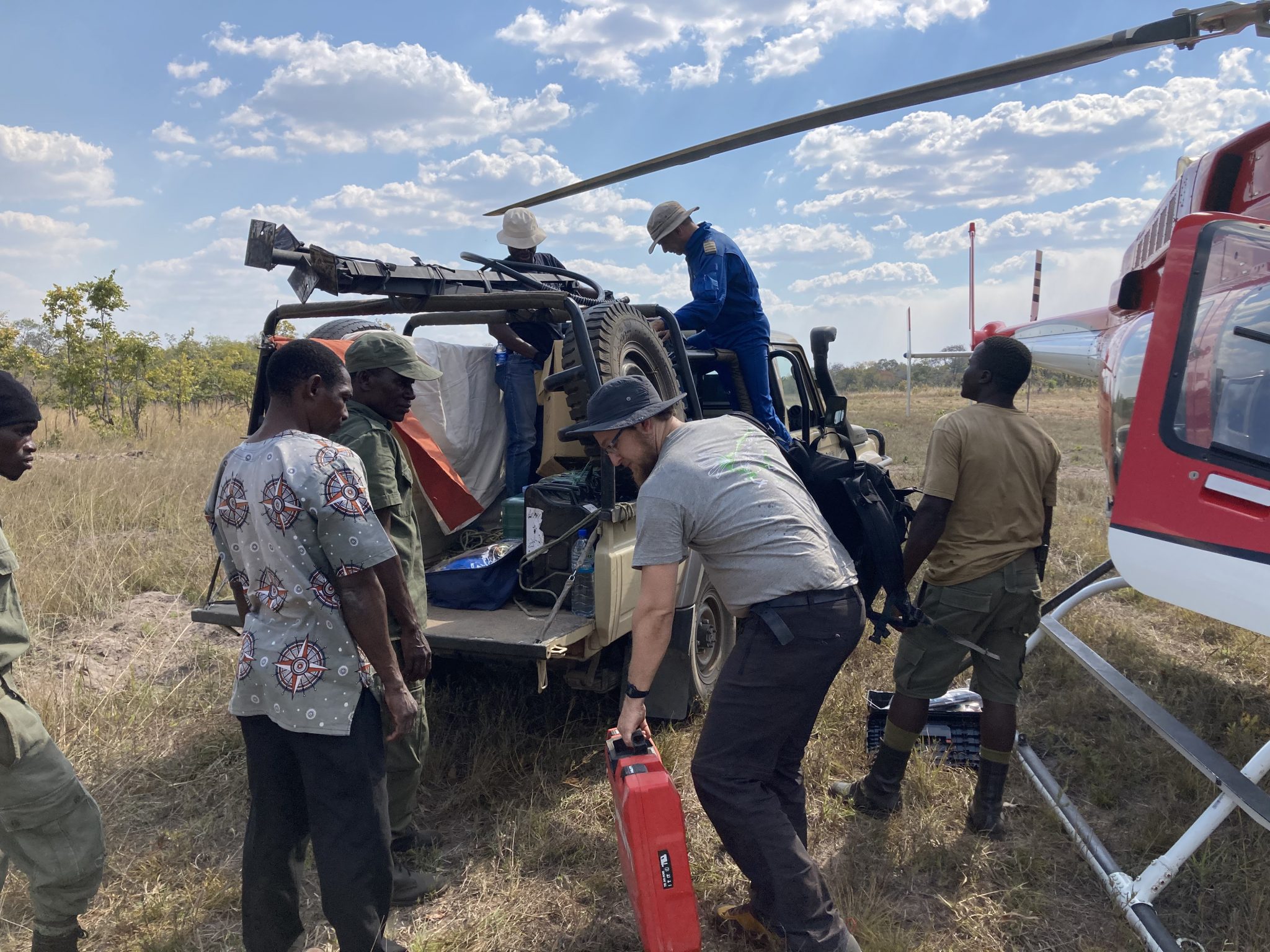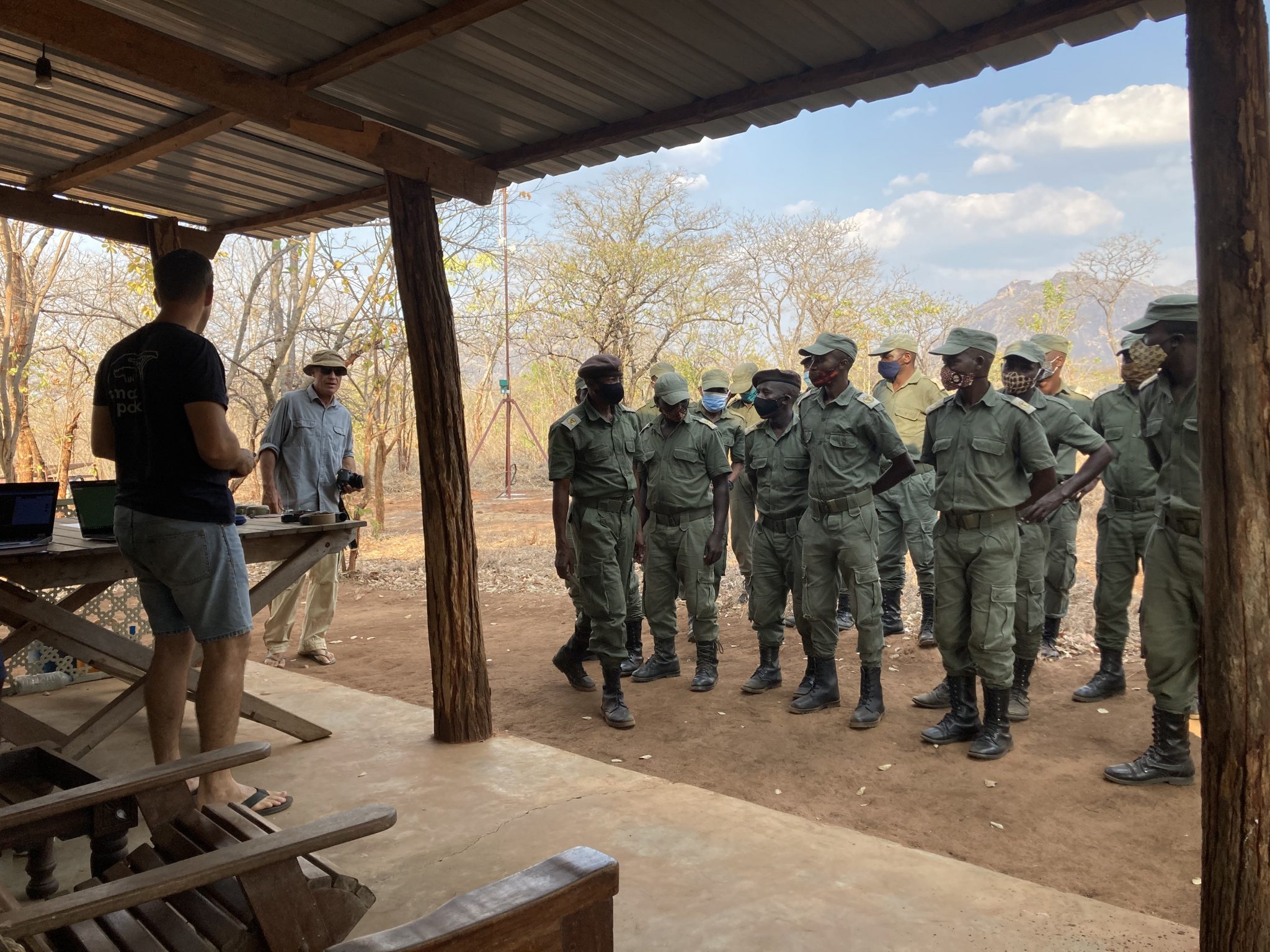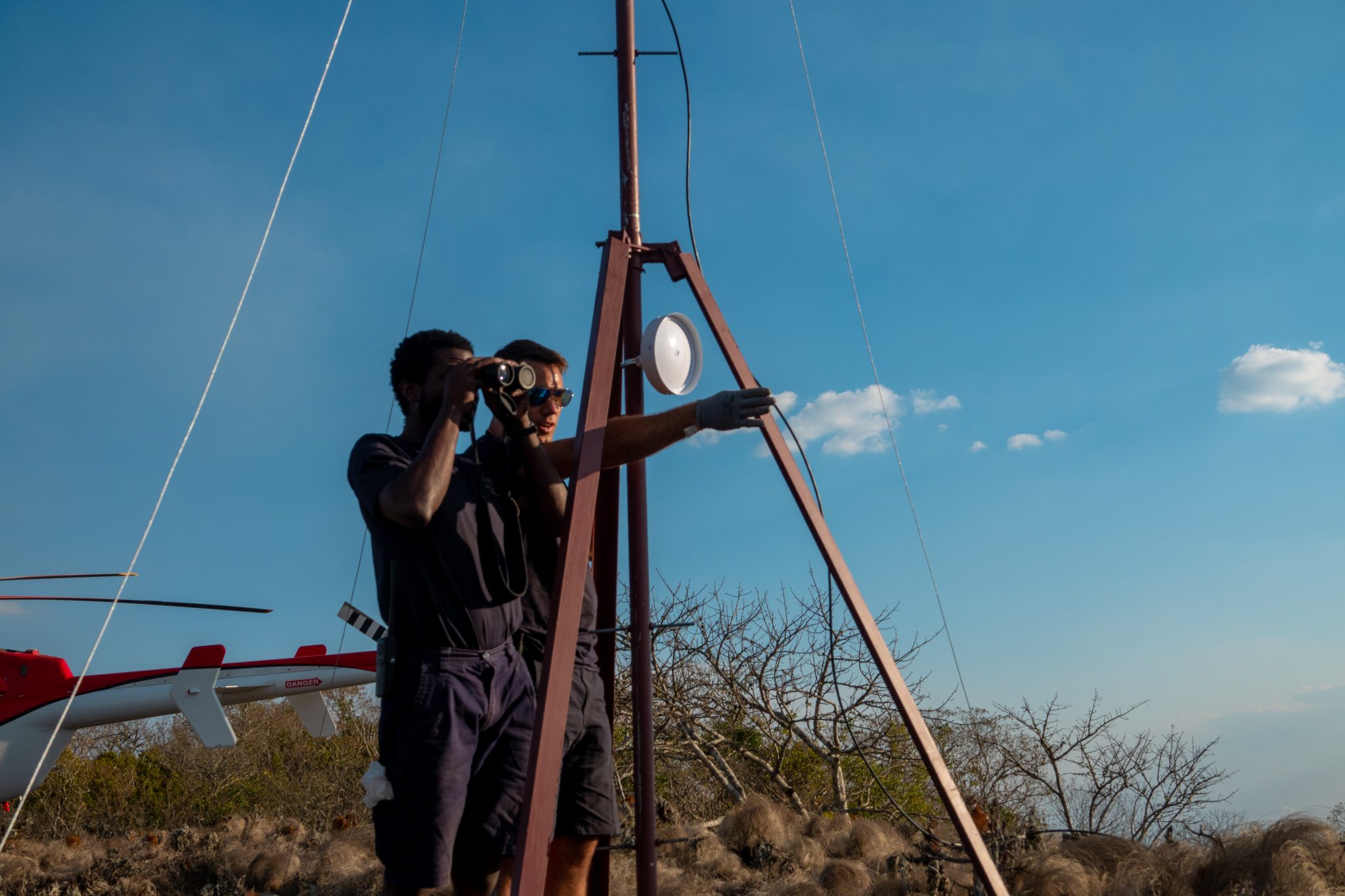Utrecht, December 2021 – The Luwire Wildlife Conservancy team and Smart Parks have realised the first Smart Parks system in Mozambique. Last September, the Smart Parks team built multiple sights to create LoRaWAN® coverage in part of the 445700 hectares of pristine wilderness in Niassa, Mozambique.

The Luwire Wildlife Conservancy, Niassa’s largest concession, is located within the Niassa Special Reserve in northern Mozambique. Niassa is the fourth largest protected area in Sub-Saharan Africa. This remote area, with a local population of 60,000 and limited tourism infrastructure is twice the size of Kruger National Park – comparable to the size of Denmark. Niassa borders with Tanzania and contains the largest concentration of wildlife in Mozambique. Over the past years, Niassa Special Reserve has made a noticeable come back in tackling successfully artisanal mining, illegal forestry and poaching.

The recently installed Smart Parks system will contribute to minimise these challenges. Supporting anti-poaching activities to tighten security. One of the main goals of the Luwire Wildlife Conservancy is to increase boots-on-the ground to ensure adequate patrolling in the vast concession and reduce wildlife crime. By providing the tools and infrastructure to assist with these tasks, the area can be managed more effectively. The system promotes the monitoring of current wildlife as well as other species.
If you want to experience real wilderness, Niassa Special Reserve is the place to go. Not only was this one of the most gorgeous places we have built a Smart Parks installation, it was also one of the most challenging. The area is covered with inselbergs, meaning “island mountain”, which are isolated mountains that stand above the plains. As more coverage is achieved when installing gateways on high sights, a helicopter was required to get on top of these inselbergs. We were very lucky with the highly skilled pilot Mario, who was able to get us, and all the required equipment, on sight.


On the last day of the deployment, the ranger team participated in Tusk’s ‘Wildlife Ranger Challenge 2021’, a half marathon with one goal: to raise money to support the men and women across Africa’s protected areas who continue to see drastic cuts in resources and an increase in poaching due to the devastating economic impact of Covid-19. It was great to be part of this important activity, and it was a great opportunity to test the new RangerEdge trackers, developed in cooperation with our long-term r&d partner IRNAS, within the new system. Luka Mustafa, founder of IRNAS, joined us on the expedition to go through the process together and ensure more RangerEdge deployments later this year.

This project was supported by the Netherlands Enterprise Agency (RVO), a government agency that facilitates entrepreneurship, improve collaborations, and realise international ambitions with funding. As part of the project, the Smart Parks team will return to the Niassa Special Reserve in the summer to demonstrate the system to neighbouring conservancies and promote the use of the technology on a larger scale.






